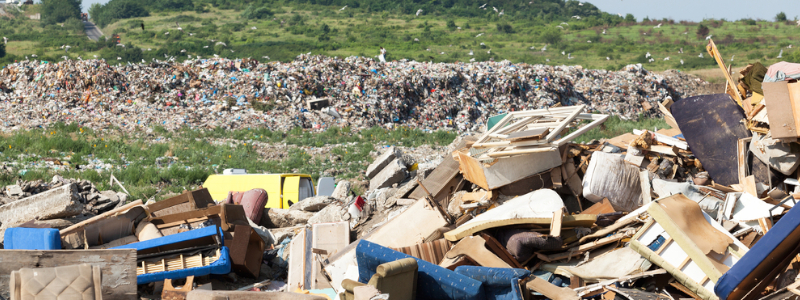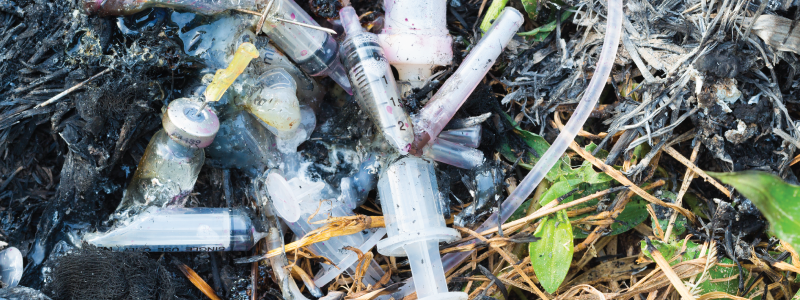
How Covid-19 is changing the UK’s attitude towards waste
29th Jul, 2020
Arguably not since the Second World War has a single event required such dramatic changes to our daily lives. In late March, the Covid-19 pandemic caused a nationwide lockdown that shuttered businesses, closed public facilities and confined the vast majority of the UK population to our homes. That resulted in some major changes to our behaviour and lifestyles that we probably wouldn’t normally have made.
These lifestyle changes have had a knock-on effect on how we produced our waste, too. For starters, it notably reduced the number of people and businesses looking to hire a skip, but meant a surge in the amount of household waste being produced – which is not the best news. However, the Covid-19 pandemic may well end up being the catalyst for some serious systemic and societal changes – and ones that should help us become cleaner, leaner and greener. So, here are just a few ways the pandemic has begun changing the way we think.
We’re a lot more aware of the dangers of our waste
In an age where germs have never been deadlier, the UK public has arguably become a lot more wary of how we handle our waste. Normal germs have the capacity to make us sick, but with potentially infected materials going into our household waste, we’re all more careful than ever. Staying clean is no longer just a general desire – more than ever, it’s an essential survival mechanism.
That’s also resulted in a little more consideration for key workers in our society – not just NHS staff, but waste collectors and sanitation workers too. Given that they risk exposure to these sorts of germs and infected materials every day, people are becoming even more careful about how they dispose of any waste that might be infected, such as gloves and masks.
This rethink also extends to other sorts of waste. The lockdown meant that people had more time to consider what they were throwing away and how, which led to many of them spending more time considering what can be recycled and what can’t. As a result, industry professionals reported notably cleaner waste going into skips and other receptacles, such as drinks containers, milk jugs, and hand sanitiser bottles.

We’re rethinking our food waste
Now, Covid-19 hasn’t been all good news for food waste – the opening stages of the pandemic saw a lot of panic buying and stockpiling, which experts think may well end up being the cause of a spike in food waste when the expiration dates of these items start to roll onto the horizon. But it’s also had a more positive effect on how we view food waste.
‘Circular’ is an online resource for the waste industry – according to one of their surveys, over half of the general public value food more, with 48% of their 4000 respondents saying they’re throwing away less food. This is in large part because people are planning their meals more carefully, and many say they’re getting better at using leftovers.
Meanwhile the Waste and Resources Action Programme (WRAP) performed their own research, which found:
- 63% of us were shopping less at the height of the lockdown
- 59% of us are buying more than we shop, to make our own meals at home
This marked a move away from pre-prepared food like ready meals, and an increasing public preference for more fresh produce and long-life products.
By all accounts, we’re getting better at reducing the amount we throw away, too. In fact, WRAP estimates that food waste from the public has reduced by as much as 34%, when compared to the average across 2018/19. That’s some pretty impressive going!
There are other environmental benefits to this approach, too – for example, preparing more meals from scratch is a great way to reduce the amount of single use packaging and food waste.
So far, it looks like the public is serious about its commitment to these lifestyle changes. In its follow-up questions WRAP found that about 9 in 10 people agree that food waste is an important national issue, and that “everyone including me has a responsibility to minimise the food we throw away”. WRAP notes a 23% increase in the number of people who “strongly agree” with both statements.
We’re changing how we think of general waste as well
There are also other elements of waste that are changing. For example, UK waste management companies have noted that an increase in the amount of glass being put out for recycling. (Although admittedly, part of that might be due to how many of the general public chose to while away some of the time locked indoors…)
A surge in online shopping has also ended up producing more cardboard recycling than usual. This in turn has helped partially fulfil a rise in demand for paper products made from recycled material, such as tissue paper or toilet paper. From the commercial side though, waste paper production has dropped quite significantly. The collection rates of of photocopies, printed materials and cardboard from commercial businesses all dropped off a cliff, as the majority of businesses were forced to close the doors to on-site premises and move their operations to a digital space instead.
Now of course, lockdown measures have started to be gradually lifted, and businesses are starting to open their doors again. But how long are these shifts likely to stay?

Optimistically, it’s likely that at least some of these behavioural changes will stick. There’s growing public support worldwide for environmental causes, and many will take it as a welcome opportunity to ensure that the benefits of these dramatic changes hang around.
Spending more time at home puts you in tune with what you’re consuming, and the economic and financial toll of the pandemic is also likely to act as an effective antidote to the most tempting negative aspects of consumerism. For the last few months, the vast majority of us have had to learn to make do with what we’ve got, and that’s not a behaviour that’s unlearned easily – especially when we’ve all got positive reinforcement from everyone else learning it too, all over the globe.
Of course, this does have a flipside, especially on a commercial scale. For businesses, making the switch to more sustainable products, procedures or suppliers isn’t always the cheapest option. And with finances tight, businesses might be tempted (or even forced) to choose the most cost-effective options rather than the ones which have the best environmental ethos. But with any luck, widespread change will spur them to keep the bigger picture in mind.
It just goes to show that the focus for our waste for businesses and individuals now is twofold – firstly to reduce the waste in the first place, and secondly to ensure that what is produced gets directed to the appropriate channels.
How we can help here at Skip Hire Network
We’re hugely passionate about sustainability and environmental causes here at Skip Hire Network. Not only do we provide cheap skip hire for businesses and individual members of the public, but we’re also on a mission to make this as environmentally friendly as possible too. We do everything we can to recycle the waste that comes to us, and our partners at various sites throughout the UK have a recycling rate of up to 100%.
We’re proud to be part of an even bigger mission, too. We operate under the umbrella of the Recycling Lives Group, which has won national acclaim for the success of its charitable and environmental initiatives – including a car recycling programme and directly reducing food waste through its Food Redistribution Centre.
You can learn more about reasons to choose us here, or get started immediately and get an instant skip hire quote by entering a couple of details on our homepage. It couldn’t be simpler!